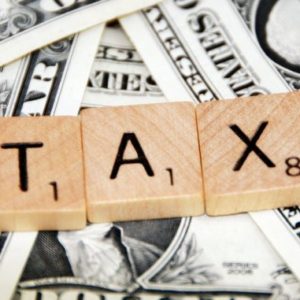As part of the recently unveiled infrastructure deal, the Biden administration announced plans to reinstate the Superfund taxes on chemical manufacturers in the United States. The proposal would essentially create a new excise tax on the manufacture, production, or importation of 42 chemicals. It is assumed that should the taxes be reinstated; the rates could be adjusted for inflation. Imposing these taxes would raise costs on consumers at the worst possible time, while crippling hiring for millions of businesses. The Biden administration and Congress should look to lower the soaring expenses facing families and businesses instead of raising taxes across the board.
The Superfund is the informal name of the Comprehensive Environmental Response, Compensation and Liability Act, which was established by Congress in 1980 to assist the Environmental Protection Agency (EPA) in cleaning up contaminated sites. The act also mandated that responsible parties “either perform cleanups or reimburse the government for EPA-led cleanup work.” Initially, the Superfund program called for taxes by manufacturers of crude oil and certain chemicals to fund a trust to pay for environmental cleanup activities. That authority expired in 1995. But under the Biden plan, those taxes would be reinstated.
Reinstating the tax on chemicals will unduly burden consumers. Further, the tax would force chemical manufacturers to pay for other manufacturers’ clean-up sites. According to the American Chemistry Council (ACC), “ACC member facilities make up less than 2 percent of Superfund sites.”
The tax would apply to chemicals that are used in countless consumer goods. This includes items containing steel, plastic, and wood. The tax would also apply to everyday consumer products including batteries, ceramics, dental fillings, fireworks, consumer electronics, paint, and water treatment.
Similar to excise taxes on tobacco and carbon, a tax on chemicals levied on consumer goods will be passed down to the consumer and regressively target lower-income persons. Households struggling to get by typically spend a greater percentage of their income than affluent households do.
Moreover, these devastating taxes are being proposed as consumers face rapidly rising prices on goods. As of May 2021, the Consumer Price Index reported a five percent 12-month increase in the cost of all goods, as well as a 3.8 percent increase in the cost of “all items less food and energy.”
An increase in the cost of manufacturing American goods would severely impact manufacturing jobs in the United States as consumers seek out cheaper goods produced overseas and not subject to taxes imposed by the Superfund program.
Even after the Superfund taxes expired in 1995, American manufacturers saw substantial slowdowns in productivity growth. Indeed, in a comparison of American manufacturing annual labor productivity growth rates between 1995-2005 and 2005-2015, overall “manufacturing labor productivity growth fell over two percentage points per year, falling by half in durables manufacturing and more than half in nondurables.”
Worse, even without the addition of Biden’s proposed reinstatement of Superfund taxes, the U.S. Bureau of Labor Statistics (BLS) predicts that the United States was expected to lose approximately 550,000 manufacturing jobs by 2022. And, BLS estimated that “of the 77 industries within manufacturing, only 19 are projected to add jobs.”
The proposed infrastructure bill is just the latest item in the Biden administration’s wish list and comes with a substantial price tag of $1.2 trillion, including significant funding for electric vehicles. Ironically, enacting taxes on chemicals could actually lead to increased prices for those supposed green vehicles (the mining and disposal of the batteries is an environmental nightmare).
Should lawmakers move forward with the infrastructure bill, they must be cognizant of the trickle-down effects of excise taxes on consumer goods. The American economy is still recovering from the COVID-19 pandemic and consumer goods are already more expensive than they were a year ago. Any tax on the chemicals of those goods will undoubtedly be pushed onto consumers, with low-income persons bearing the brunt of the tax. The Superfund tax will derail our economic recovery and plunge taxpayers and consumers into a never-ending spiral of higher costs.

